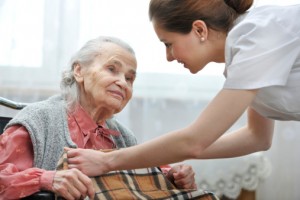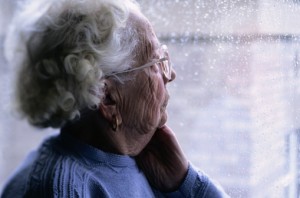 We’ve always been told to “respect our elders”, but looking at the news and hearing the horrific stories of elder abuse, it’s clear that not everyone holds elders in high regards. Elderly individuals, over the age of 60, are at higher risk for maltreatment and such elderly neglect takes place everywhere, but most often in the nursing home setting. In nursing homes, residents are vulnerable as they often rely on others (such as nursing aides) to assist them with everyday living. Unfortunately, many elders are physically, mentally, sexually, financially exploited, making them victims of a large and sometimes “silent” problem, elder abuse.
We’ve always been told to “respect our elders”, but looking at the news and hearing the horrific stories of elder abuse, it’s clear that not everyone holds elders in high regards. Elderly individuals, over the age of 60, are at higher risk for maltreatment and such elderly neglect takes place everywhere, but most often in the nursing home setting. In nursing homes, residents are vulnerable as they often rely on others (such as nursing aides) to assist them with everyday living. Unfortunately, many elders are physically, mentally, sexually, financially exploited, making them victims of a large and sometimes “silent” problem, elder abuse.
According to the Centers for Disease Control and Prevention (CDC), over 500,000 older adults (aged 60 +), in the U.S., are believed to be abused or neglected each year. However, the startling and overwhelming statistics are most likely underestimated due to the number of elder abuse that is not reported. Like many abuse victims, many elders are unable or afraid to report the abuse to police, family, friends, or others who can protect them. Family and friends who have a loved one in a nursing home facility should stay involved, informed, and be on the lookout for any suspicious behavior in either the resident or a worker.
Warning Signs of Elder Abuse in a Nursing Home
When visiting a friend or family member in a nursing home pay attention to the way he/she looks and acts. If you suspect elder abuse, report it. Protect seniors by bringing suspected abuse to the attention of the appropriate authorities such as a local adult protective services agency. Many people are afraid to report suspected abuse because they fear they might be wrong, but if you don’t report suspicious activity, your elderly loved one could continue to be abused and in worse cases, die because of the abuse. Take action and report if you see, hear, or suspect the warning signs of neglect in a nursing home:
– Your loved one might be Financially exploited if:
- He/she has a lack of affordable amenities and comforts in their room.
- Uncharacteristic or excessive giving of gifts or financial reimbursement for care and companionship.
- The victim is not getting proper care to fulfill needs, even if money is available for such costs.
- Has made legal or monetary transactions, but does not understand what they mean.
– Your loved one may be a victim of physical or emotional abuse if he/she:
- Has inadequately explained fractures, bruises, welts, cuts, sores, or burns
- Unexplained sexually transmitted diseases
- Unexplained or uncharacteristic changes in behavior, such as withdrawal from normal activities, or unexplained changes in alertness
- Caregiver is verbally aggressive or demeaning, controlling, or uncaring
– Your loved elder may be a victim of overall Neglect if he/she:
- Lack of basic hygiene or appropriate clothing
- Lack of food and basic needs
- Lack of medical aids such as glasses, dentures, medication, hearing aids.
- An individual with dementia is left unsupervised
- An individual confined in bed is lacking care
- The room is cluttered or dirty or in need of repairs and lacks amenities
- Untreated bed sores or pressure ulcers (indication of lack of care)
Elder abuse and neglect in a nursing home affects thousands of innocent senior citizens each year. Many suffer in silence because they are unable to communicate and they live in fear. Be the voice for neglected elders. Respect your elders; don’t turn your back on them.


